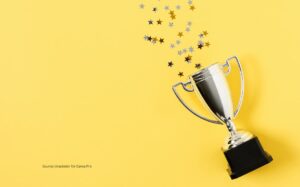Imagine how you would see the world if you grew up in a vast, cool redwood forest. And, now, think about what life would be like if you grew up on a small tropical island surrounded by the sea. What would you eat and wear, who would you interact with, and how would you spend your days? What actions and behaviors would be essential for survival?
Now take this a step further and consider how each environment might affect how you see yourself and how you think, feel, and react in response to a global issue such as climate change. That is the cultural lens in action. But what is a cultural lens, how does it form, and why does it matter?
I have spent years exploring this question and applying it to my work. It is a topic that I find fascinating because I believe each person’s cultural lens is the key to understanding concepts like fairness, beliefs, justice, honesty, and preservation. While the hypothetical citizens of the forest and island might agree that preserving the environment is important, they might also have wildly different opinions about what to do next.
What is Culture?
To truly grasp the concept of a cultural lens, we must first understand the notion of culture.
Culture consists of the beliefs, values, and goals that guide daily life for a group of people. And it begins to form whenever a group comes together for a common purpose. But we don’t necessarily indoctrinate someone into a culture intentionally. Usually, we demonstrate it through celebrations and rituals, indicating that “this is just the way things are.”
Culture matters to people because it creates a sense of belonging and safety within the group. When we participate in the group’s events and accept that its way of life is “the way things are,” we signal that we fit in. Over time, we absorb the beliefs and behaviors the group sees as “normal” into our subconscious until we genuinely think their standards are our own.
What is a Cultural Lens?

A cultural lens is simply the unique perspective each of us forms due to the cultural conditioning we receive from our groups. In other words, it is the inevitable result of living in an environment, absorbing the culture, and accepting it as ours.
If you have toddlers or preschoolers in your life, you might notice that their innate curiosity compels them to ask many questions that begin with “why.” Why do we do things this way? Why do we believe that? Our answers help to socialize them into our culture and form a cultural lens similar to our own.
The development of a cultural lens is an entirely normal and natural process. The passing of beliefs, values, celebrations, and rituals down to the next generation helps us establish comforting traditions. However, it is common for us to view every situation through this lens, deciding how we feel about it and reacting based on whether it confirms or challenges our socialized beliefs.
A Cultural Lens Example
Let’s go back to the fictitious forest dwellers and islanders.
What if the forest dwellers believed trees were sacred and fish from a nearby river was an essential part of their diet? But the island dwellers saw finned creatures as sacred and used trees for building shelter.
Then, one day, the forest dwellers traveled to the outer edges of the forest to a rugged beach, only to encounter the islanders who had left home to explore distant lands.
Since they know nothing about each other’s perspectives, there might initially be curiosity on both sides. But imagine the islander’s horror upon realizing that the forest dwellers were killing fish for their dinner. Likewise, if the islanders started cutting down trees to fashion shelter, the forest dwellers would be equally shocked.
Why is Our Cultural Lens Vital to Our Quest for a Satisfying Life?

So which group is correct? This simple (and imperfect) example demonstrates how a cultural lens can influence how we try to belong within our social groups and how we process information and interact with people outside our group. Therefore, our cultural lens plays a critical role in decisions, affecting our quest for a satisfying life.
Our cultural lens serves three primary functions; it affects how we see ourselves, how we see others, and how we make decisions that lead to action. And these three functions are tightly entwined.
How We See Ourselves
Our lens acts as a powerful filter that shapes our unique identity as it relates to the world around us. For instance, many people introduce themselves by saying, “I am _____.” And we often customize the words that follow “I am” depending on the situation and how we perceive it due to our cultural lens.
For most of us, this means that when we walk into a professional environment, we are likely to introduce ourselves by stating our job function. But if we attend an event at our child’s school, we introduce ourselves as our child’s parent. Now imagine how it might feel if you didn’t know how to introduce yourself, given the context of the environment. Or, worse yet, if you thought the answer to “I am” would signal that you didn’t belong.
How We See Others
Our cultural lens also informs us of who is an “insider” or “outsider.” Throughout our lives, we form narratives and biases based on how we perceive others through our lens. Then we interact with people based on that perspective, regardless of whether or not it is true.
The fictional forest and island dwellers would likely have strong, visceral emotions after witnessing the other party’s behaviors. That is understandable, but it doesn’t mean either party did anything wrong. Their respective viewpoints are subjective.
How We Make Decisions
The average person makes up to 35,000 decisions daily, and we filter each choice through our cultural lens. Many of these occur unconsciously and reactively. But, if we don’t question the basis for our decisions, we risk making choices that will leave us feeling unsatisfied.
It would be tragic if the forest and island dwellers physically attacked each other in response to their differences. Both groups have a culture that developed independently and may have served them well in the past. But if they don’t question their perspectives in the context of the encounter with another culture, it could lead to irreparable harm.

So the prudent thing to do in these situations is to consider your perspectives, the values behind them, and the purpose they serve (typically to protect us and our role within a group). Only then can we communicate with those who think differently in a way that builds trust and connection with statements and questions like the following:
- I see this issue from the following perspective.
- It is important to me because _____.
- How do you view the situation?
- How can we craft a mutually satisfying solution?
How to Explore Your Cultural Lens
Most of us have a cultural lens resulting from decades of inherited narratives. And we might strongly identify with that history. However, culture and society change over time, and in today’s global economy, we will encounter many perspectives that differ from our own. So we must learn to pause, examine our lens, and make any necessary adjustments to ensure we see the world clearly and have satisfying, productive interactions.
If you are ready to understand your cultural lens better, I welcome you to visit my resource page for free downloads to guide your journey.





